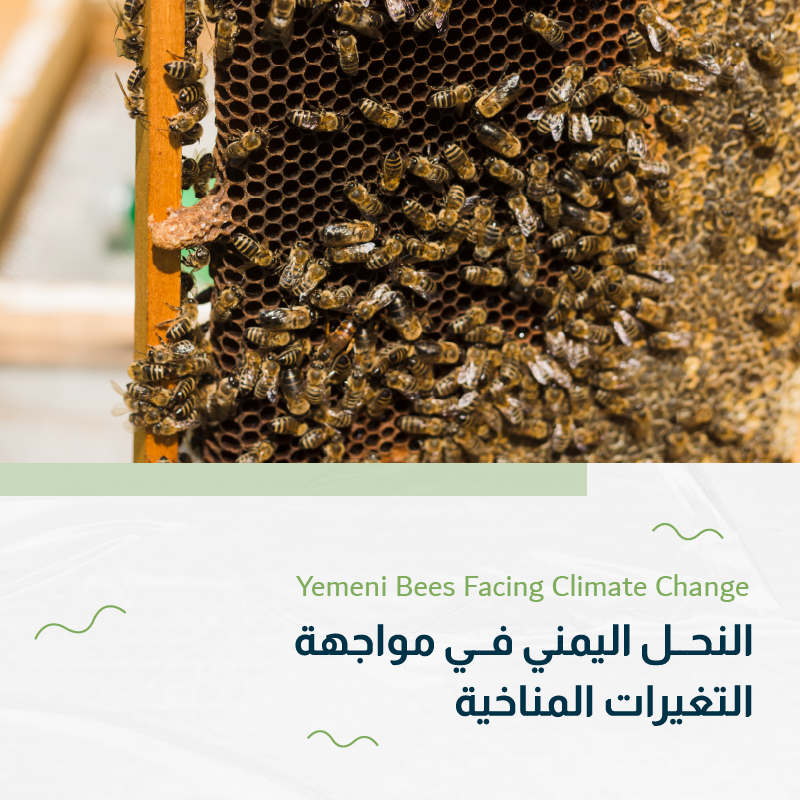
Renowned globally for its exceptional quality and nutritional value, Yemeni honey holds a special place in the hearts of Yemenis. It is a staple in many households, believed to offer medicinal benefits and often used in traditional rituals. Beekeeping in Yemen provides a livelihood for approximately 100,000 beekeepers, according to a FAO report. It plays a pivotal role in Yemen's food security and nutrition.
However, the bees producing this high-quality honey now face significant challenges due to the ongoing armed conflict, which has lasted for a decade, coupled with unpredictable climatic conditions. Beyond honey production, bees are indispensable pollinators for a wide range of plants and crops. The United Nations estimates that there are approximately 20,000 to 30,000 bee species worldwide, highlighting the critical role of bees in maintaining biodiversity and food security.
Climate change poses one of the most significant threats to bee populations and honey production in Yemen. Fluctuations in temperature and rainfall patterns disrupt the flowering of plants, the primary source of food for bees. This reduces the availability of food for bees during honey production seasons and impacts crop yields.
Drought is another major factor contributing to the decline of bee pastures, leading to a severe shortage of pollen and water. Consequently, some beekeepers are forced to purchase pollen, but many cannot afford this expense and are compelled to abandon their beehives.
In recent years, Yemen has experienced an increase in floods, storms, and unpredictable heavy rainfall, resulting in damaged beehives and the destruction of many bee pastures.
These extreme climate changes, such as fluctuations in humidity and temperature, have led to the proliferation of pests and diseases affecting bee colonies, weakening their populations and sometimes causing their collapse.
The decline of bee pastures has a direct impact on Yemen's food security, reducing the production of many pollinator-dependent crops. It also leads to biodiversity loss and the spread of invasive plant species. Moreover, it causes economic losses as many beekeepers rely on honey production or pollination services for their livelihoods.
The combined effects of climate change, economic decline, and food insecurity continue to threaten honey bee production in Yemen. Urgent action is needed to preserve bee populations and their economic value to safeguard this vital resource.